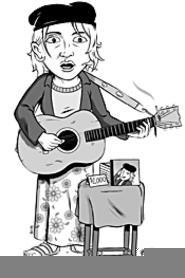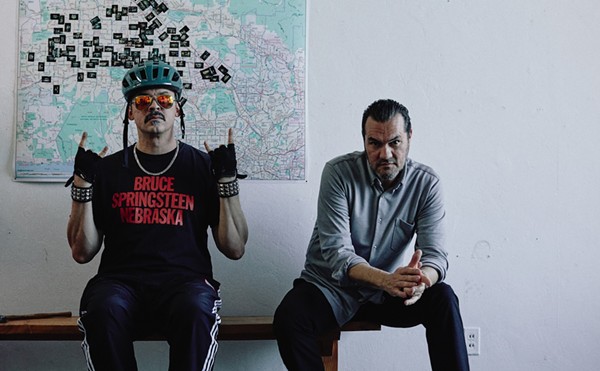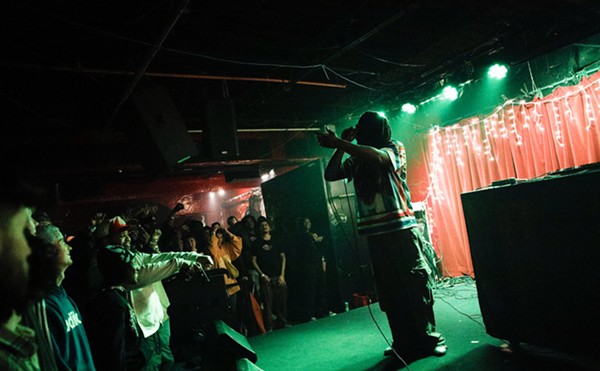Thanks to her $1,000 CD and the bizarre way that she defended it, Marchant has been ridiculed across the internet. She's an icon on the music snob's reference forum "I Love Music" (www.ilxor.com), where she -- or someone pretending to be her, internet identities being what they are -- comes by to fight with the regulars. This has gone on for so long and spawned so many sarcastic threads that Marchant has become not so much a real commercial phenom -- hell, she may not even exist -- as a symbol of the massive value artists see in their work, which, in her case, is summed up by a tidy round number on a price tag.
So is she wrong? We consumers are used to paying under 20 bucks for an album -- as well as a buck a download for everything on iTunes -- across the board. That goes for drunken impulse buys as well as the best music in the canon. In other businesses -- wine, for example -- price can skyrocket according to quality, scarcity, demand, and dozens of other factors, yet we expect all music to cost the same. Does that make sense? After all, not all music is created equal.
Recently, Eric Garland, CEO of BigChampagne Online Media Measurement, shared with us a half-serious idea: Instead of struggling to start a record label and make back your profit $15 at a time, why not find a really special artist -- one who has few but devoted fans -- and charge a grand an album? You could sell 100 copies and still make back more money than that label your roommate tried to start last summer (and he'll clear the merch out of the living room this weekend, he swears).
Garland asks, "Why am I not spending $1,000 on the artists that I really love, rather than a buck at a time on artists whose names I can't remember every other week?" And he's right. Stop and picture your favorite album and all the hundreds of times you've listened to it, and imagine putting a dollar amount on that; it's like putting a price on your virginity -- or your mother. The less than $20 you probably spent on that album was chump change.
Some people do end up spending a ton of cash on the same album. Think about the Elvis Costello fan who buys every reissue and remaster: What does that cost him over time? Or how about your friend the corporate lawyer, who buys every single Dick's Picks to replace his bootlegs? We don't even have to get into the record collectors who shell out hundreds of dollars for out-of-print records -- people will pay a fortune for stuff that's worthless to anybody but them.
The "one price fits all" model will probably break down not at the record store, but online. According to Forbes, EMI Group boss Alain Levy expects Apple to start charging multiple price points in the next year, after months of fighting between iTunes and the major labels. And it makes sense. To take an example from Jim Urie, president of Universal Music & Video Distribution, why does Lynyrd Skynyrd's "Free Bird" cost the same 99 cents as the band's other songs? (He's right: Shouldn't it cost a lot less?)
And we consumers would probably love higher prices. We're typically dumb enough to think that if something costs more, it's worth more, and we secretly wish we could find albums that deserve a triple-digit price tag and are worth treating as heirlooms. In fact, after thinking it through and reading so much about Marissa Marchant, we grew curious about that $1,000 album. At that price, it must be something special. If she wanted to sell CDs for $100 or $500, you'd know she was kidding -- but a grand? Holy crap, how good could it be?
We'll never know. Marchant's site has gone down -- we guess she didn't sell enough discs to pay for hosting -- and we can't find her records or even her sound clips anywhere on the web. All that's left of this mysterious savant are rants on message boards and a claim -- bogus? -- that she's restarted her career under the name Mariesa Sabriel. Tracking her down is like finding a lost antiquity when there are too many forgeries in the way.
But whether or not Marchant deserves the cash, somebody does. Today's music industry has room for gigantic artists and tiny ones, for small bands with hand-labeled cassette tapes and Dixie-rock dinosaurs who can move millions of downloads. Some people tape a concert on a four-track and sell it; others, like Kanye West, need months in the studio to make a single record. Some people really are geniuses, and others just rant on message boards. We understand these factors, yet we don't let them nudge the price tag. If we really loved and respected our music, we would cough up the dough to prove it.













